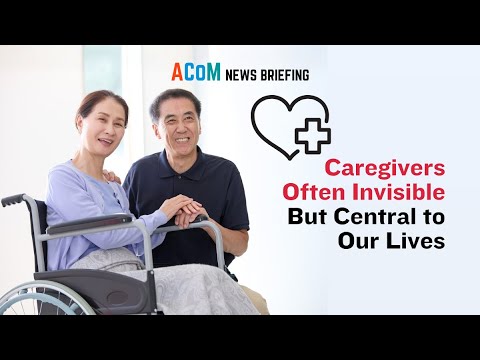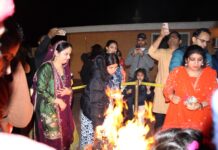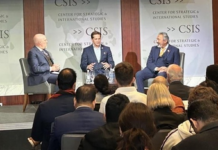Vidya Sethuraman
India Post News Service
Family and informal caregiving is central to California’s health care system, supporting millions of older adults and people with disabilities every day. Yet many of the dedicated people who provide care don’t consider themselves “caregivers.”
As a result they miss out on information, services and resources that could support them. The California Department of Aging and ACoM co hosted the Nov. 19th virtual news briefing — part of an ongoing series — that aims to bridge that information gap even as we explore the broader concept and experience of “care”.
Experts who spoke at the briefing pointed out that there are approximately 63 million family caregivers in the United States, with as many as 7 million in California alone, providing about 65% of the state’s long-term care needs. However, most caregivers do not consider themselves “caregivers,” resulting in their inability to receive timely assistance and their neglect of the physical burden, emotional stress, social isolation, and financial pressure that come with caregiving.
Susan DeMarois, Director, California Department of Aging said caregiving has become an integral part of California’s social fabric. If you ask someone if they are a caregiver, they might say no. But if you ask them if they drive seniors to the doctor, help them pick up medications, or prepare meals, they will most likely find that they are actually providing care. She emphasizes that raising public awareness and early preparation for caregiving is a key policy goal at this stage, and also calls on the media to help disseminate information to vulnerable and neglected communities.
Dr. Donna Benton, Director, USC Family Caregiver Support Center (FCSC) and the Los Angeles Caregiver Resource Center (LACRC) shared that the complexity of care has increased dramatically over the past few decades. She pointed out that care used to be an “acute, short-term” task, but with an aging population, many people now require intensive care for more than a decade. Coupled with trends such as “home hospitals,” families are forced to shoulder higher technical demands, including medication management, pain management, and even basic medical procedures. She urged that policies and social structures must keep pace with these changes.
Dan Salinger, Family Caregiver shared the changes his father underwent after being diagnosed with dementia, including getting lost, exhibiting abnormal behavior, and experiencing a decline in daily functions, ultimately forcing him and his family to take over caregiving entirely without preparation. “Most of us don’t choose to become caregivers; we suddenly become caregivers one day,” he said. Alma Valencia, Family Caregiver







